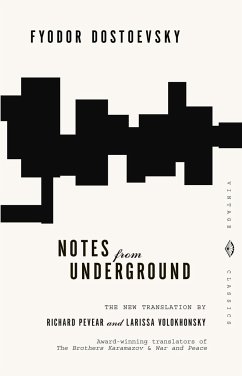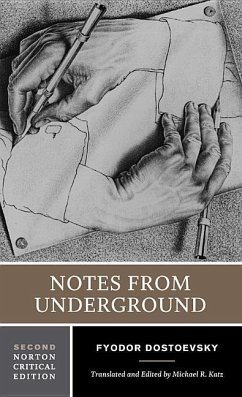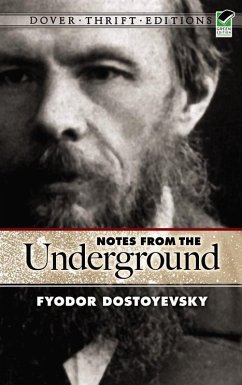
Notes from the Underground

PAYBACK Punkte
6 °P sammeln!
"To love is to suffer and there can be no love otherwise" - Fyodor Dostoevsky, Notes from the Underground The darkly fascinating novella Notes From The Underground was written by Fyodor Dostoyevsky in 1864, shortly before he penned his lengthier later novels, including The Brothers Karamazov and Crime and Punishment. Considered by many to be one of the first existentialist novels it follows the complicated mind of a bitter, retired civil servant (generally referred to by critics as the Underground Man), who lives alone in St. Petersburg, Russia in the mid 19th century. Able to retire after rec...
"To love is to suffer and there can be no love otherwise" - Fyodor Dostoevsky, Notes from the Underground The darkly fascinating novella Notes From The Underground was written by Fyodor Dostoyevsky in 1864, shortly before he penned his lengthier later novels, including The Brothers Karamazov and Crime and Punishment. Considered by many to be one of the first existentialist novels it follows the complicated mind of a bitter, retired civil servant (generally referred to by critics as the Underground Man), who lives alone in St. Petersburg, Russia in the mid 19th century. Able to retire after recently inheriting some money, the narrator in full retreat from society has defiantly withdrawn into an underground existence. In full retreat from society, he scrawls a passionate, obsessive, self-contradictory rambling narrative that runs the gamut from human morality, to logic and reason and serves as a devastating attack on emerging Western and contemporary Russian philosophy, as well as social utopianism and an assertion of man's essentially irrational nature. These memoirs or confessions describe and explain his alienation from modern society and the work can be viewed as an attack on and rebellion against determinism, the idea that everything, including the human personality and will, can be reduced to the laws of nature, science and mathematics. One of the most remarkable characters in literature, the narrator is a doubting, alienated protagonist in a novella that introduces the moral, religious, political and social themes that dominated Dostoyevsky's later masterworks.














